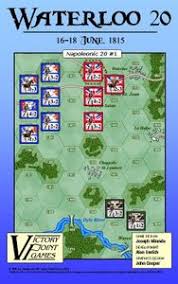The Historical and Cultural Significance of Waterloo

Introduction
Waterloo, a name intertwined with both history and culture, evokes memories of one of the most pivotal battles in European history. The Battle of Waterloo, fought on June 18, 1815, marked the end of the Napoleonic Wars and led to a significant shift in the balance of power in Europe. Understanding Waterloo’s importance not only provides insight into military strategies and political dynamics of the past but also highlights its continuing influence on modern culture and identity.
The Battle of Waterloo
During the summer of 1815, the forces of Napoleon Bonaparte clashed with the Seventh Coalition, which included the United Kingdom, Prussia, and other allies. The confrontation at Waterloo, located in present-day Belgium, saw the defeat of Napoleon, leading to his exile to Saint Helena. This marked a decisive end to an era dominated by his ambition and military genius.
The battle is often analyzed for its impact on military tactics and diplomacy. Field Marshal Wellington and Gebhard Leberecht von Blücher coordinated a successful strategy that not only relied on the terrain but also on the morale of the troops, demonstrating the interconnectedness of leadership and tactics. The aftermath prompted discussions on the need for collective security in Europe that eventually laid the foundations for future alliances.
Cultural Legacy
Beyond military implications, the legacy of Waterloo has permeated through art, literature, and popular culture. Writers like Victor Hugo and Leo Tolstoy referenced the Battle in their work, reflecting on themes of heroism, sacrifice, and the human condition. The iconic phrase, ‘The Battle is lost,’ continues to resonate in conversations about defeat and resilience.
Additionally, the anniversary of Waterloo is commemorated annually, serving as a reminder of the lessons from the past and the importance of peace and cooperation among nations. The site itself has become a popular tourist destination, where visitors can learn about its historical significance and view monuments that celebrate shared European heritage.
Conclusion
Waterloo remains a symbol of transformation in history, reflecting a turning point that reshaped Europe. Its significance extends from military strategies to cultural discussions, making it a subject of relevance today. The enduring memory of the Battle serves not only as a historical reminder but also as a prompt for reflection on contemporary global tensions. As nations continue to navigate conflicts, Waterloo epitomizes the complexities of peace and the consequences of war, reminding readers of the importance of diplomacy and understanding in our interconnected world.








